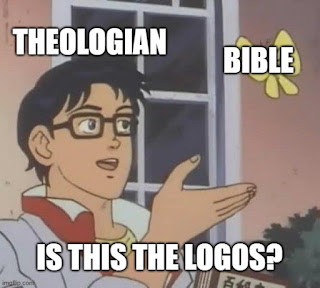Word, words, joy, and judgement: John 1:1-5, Nehemiah 8:1-12, and Jeremiah 36:10-28
My impulse, when citing scripture
about the Word is to go to the Gospel of John and regale people about the Logos—that
is, John points to Jesus as the Word/Wisdom/Blueprint of God, and the shocking
part of that is that the Logos becomes flesh.
The danger is that as a culture we’ve so completely identified Word
with Bible and scripture, that we start to confuse the Bible and Jesus. To be
clear, there are useful analogies one can make between the two, for example: If
we’ve always affirmed both the divinity and humanity of Jesus, it shouldn’t be
too hard to affirm both the divine and human hand in the inspiration of
scripture. But confusing the thing pointing to God’s acts, and God’s acts
themselves, is dangerous; as one of my predecessors in the ministry drilled
into several congregations he served, “We worship Jesus, not the Bible.” So,
let’s go to two earthier examples of the Word, one where Scripture’s witness is
positively received, and one where it is decidedly not received that way.
In the first case we have the overwhelming joy the reconstituted people
of God feel when Ezra has the Torah read aloud to the people (do note that they
give the plain meaning of the law to the people). It is like a constitutional
convention, a celebration of being a people again, of cutting a covenant with
God and neighbor—these words are holy for us.
In the second case, the higher ups
in Jeremiah’s society read a Word of the Lord, and instead of cutting a
covenant, cut the words to pieces, and use them as kindling! You can almost see
Jehudi slicing scripture like an apple or a celery stalk; Jehudi throwing the
Word of the Lord into the fire like campers tossing pinecones into the bonfire.
King Jehoiakim and his people receive the Word as judgement, whereas the people in Nehemiah receives it with joy—Lutherans might describe them as experiencing it as Law and Gospel. One speaks to an end of a people, the other to a new beginning. And then you have John’s In-the-Beginning Word—drawing the totality of the cosmos toward the living Word uplifted on a cross, that we might know the invisible God made visible.



Comments
Post a Comment